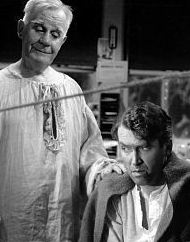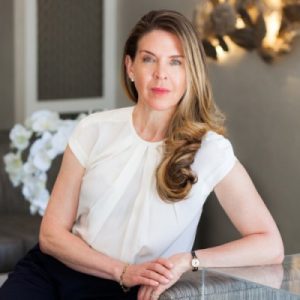by Dr. Matthew Welsh | May 29, 2024 | Authenticity
Carl Greer, PhD, PsyD, is a retired clinical psychologist and Jungian analyst, businessman, shamanic practitioner, author, and a philanthropist, funding over 60 charities and more than 850 past and current Greer Scholars. He has taught at the C.G. Jung Institute of Chicago and been on staff at the Replogle Center for Counseling and Well-Being. He received his PhD from Columbia University and was on their faculty teaching finance and management in their graduate school of business. He is also the author of a memoir: The Necktie and The Jaguar: A Memoir to Help You Change Your Story and Find Fulfillment in Your Life.
In our conversation, we talk about the following:
- Why and how he switched careers as the president of an oil and gas company to become a clinical psychologist, Jungian analyst, and shamanic practitioner.
- What synchronicity is and how you can create more of it in your life.
- His work as a shamanic practitioner and how you can use shamanic practices in your life to connect with your Spirit and create a vision for your life.
- How you can find meaning and guidance in your dreams.
- How to avoid burnout, compassion fatigue, and stay motivated.
- What your mythopoetic self is and how you can connect to it through nature and other shamanic practices.
During our interview, I actually lost connection with him over Zoom about 18 minutes into the conversation. After about 10 minutes we eventually reconnected, regained connection, and restarted the conversation on Zoom. Carl looked for the deeper meaning in that experience and remarked, “Life throws us curves and sometimes we can’t overcome them. But sometimes we hang in there and things change.” This is a good life lesson that comes across throughout our conversation and during his memoir: The Necktie and The Jaguar: A Memoir to Help You Change Your Story and Find Fulfillment in Your Life. For more information please visit http://www.carlgreer.com/
by Dr. Matthew Welsh | May 24, 2024 | Authenticity
Dr. Yosi Amram began his leadership journey in the Israeli military where he received numerous awards and garnered the fastest promotion record in his regiment’s history. Despite these accomplishments, the military chafed at his soul, eventually inspiring his lifelong quest for more humane approaches to leadership.
After leaving the military, Yosi studied engineering at MIT and earned an MBA from Harvard. He took the leap into leadership experiments of his own as the founder and CEO of two tech start-ups, both of which he led through successful IPOs.
Then, as CEO of a public company with a rising stock price, he experienced a psychospiritual breakdown, a “dark night of the soul,” which catapulted him into a spiritual awakening. The epiphany and the manic episode that went with it were both excruciating and exalting, enabling him to see through the illusion of separation to the truth of our inter-connectedness. This put his life and value system on a fresh trajectory.
He went back to school for a PhD in clinical psychology, ultimately developing the first research-grounded theory and validated measure of spiritual intelligence (SI) with an associated model he created and named Spiritually Intelligent Leadership (SILeadership). This research has received over a thousand citations to date.
Yosi is devoted to awakening greater spiritual intelligence in himself (a lifelong journey) and in the world. Working as a licensed clinical psychologist and leadership coach, he has supported over 100 CEOs as they built organizations, led thousands of employees, and reached annual revenues in the billions, all while increasing their happiness, power, and effectiveness as leaders in their work and personal lives.
He is also the founder of several nonprofits, including trueMASCULINITY.org and Engendering-Love.org. Yosi is blessed with two wonderful grown children who are the bright stars of his life. He enjoys nature, hiking, biking, reading, playing chess, meditating, and dancing. I recently had the chance to talk to Yosi about his life experiences, research, advice for business owners and employees who would like to implement his insights on spiritual intelligence into their life and work, and his book “Spiritually Intelligent Leadership: How to Inspire by Being Inspired”. In our conversation, we talk about the following:
- What spiritual intelligence is and how it differs from and complements emotional intelligence
- How you can implement principles of spiritual intelligence into your work if you are unhappy, stressed, or considering a career change
- How leaders can use principles of spiritual intelligence to make positive changes in their organization and challenge unhelpful bureaucratic procedures
- How his background in the military, CEO, and Harvard MBA helped influence his teachings and practices on leadership
- How to start and run a business that implements principles of spiritually intelligent leadership
Yosi not only talks about how you can incorporate principles into your spiritual life; but also your work and professional life to make changes on an individual and organizational level.
For more information on Yosi and his book “Spiritually Intelligent Leadership: How to Inspire by Being Inspired” , you can visit his website at https://yosiamram.net/
by Dr. Matthew Welsh | Jan 12, 2021 | Authenticity
 By Dr. Matthew Welsh, J.D., Ph.D.
By Dr. Matthew Welsh, J.D., Ph.D.
There are a lot of self-help authors who will tell you to follow your passion. I’m a believer in this philosophy and think it can be helpful. However, I believe that following your *calling* is different than following your passion. And, I would argue that following your calling is more important than following your passion.
Essentially, following your passion is doing the activities that bring enthusiasm and joy into your life and you are passionate about. Alternatively, following a calling is doing the activities or making decisions that bring you an inner knowing that this activity or decision is the right thing to do. Or, a calling may be following your heart. Sometimes following your passion and following your calling overlap, but other times they do not overlap. For example, if someone loves to write and they also know in their heart or have an inner knowing that writing is the right activity for them to do, then their passion and calling overlap.
However, sometimes following your calling does not overlap with following your passion. A good example of this is the fictitious character George Baily (played by James Stewart), in the timeless movie It’s a Wonderful Life. In this movie, George’s calling does not overlap with his passion. George’s passion is to travel the world. The movie starts with George graduating from high school with dreams of traveling the world. However, three months later the board of directors at the Building and Loan (George’s father’s company) tell George that the Building and Loan company will only stay open if George agrees to work for them and carry on his father’s work. George decides then not to take a trip to Europe in order to work for them. He also uses the funds that he had saved to go to college to give to his brother so his brother could go to college. George continues to work for this company because he believed it was the right thing to do for his family and likely an inner calling or knowing he had. Four years later, George uses money he had initially saved in order to take his wife on honeymoon to New York and Bermuda to instead keep the Building and Loan company solvent and prevent investors from taking all of their money out the bank.
In this case, George was following his calling because he was doing in his heart what he believed was the right thing to do by working for the Building and Loan company even though his passion was to travel. However, I must admit this is a hard scene for me to watch in the movie and I found myself even questioning George’s decision. He was foregoing his personal passion in order to follow a deeper calling inside of him to do what was for the best and highest good. This is another distinction of a calling. Usually a calling comes with a knowing that our decision is working on behalf of the best and highest good. This is not always easy to recognize, but usually we have an inner knowing or a peace that passes understanding of what decision is for the best and highest good. Following our calling in life does not always result in following a passion, having more ease or joy or enthusiasm in life.
However, the benefits of following a calling are that we know we are doing the right thing; and even if it is not easy, following an inner calling usually comes with experiencing an inner peace that passes understanding or internal satisfaction. If we listen closely, then we will know what our callings or inner knowings or heart is telling us to do and the benefits wiil be an internal satisfaction that we are doing the right thing with our life, working towards the best and highest good, and an internal an ineffable experience of contentment. This feeling of internal satisfaction is always available to us when we are following our calling if we can choose to trust in our self or Spirit that we will not be led astray.
by Dr. Matthew Welsh | Dec 1, 2020 | Authenticity

The following article is written by Dr. Mandy Simon about her interview she did with me as part of her Holy Grail Master Class Online Series.
By Dr. Mandy Simon
Creator of Your Holy Grail Master Class Online Series
How do I help people to become their authentic selves? Dr. Matthew Welsh had always been drawn to human potential. But it took a period of sustained hardship, before he came to focus on his true calling.
Dr. Matthew Welsh works as a clinical psychologist with the Veterans Association, supporting patients to overcome anxiety, depression, PTSD, substance misuse and relationship issues. You’ll love this interview if you believe that power comes from a state of service.
We talk about the beneficial effects of slow, controlled breathing; and Dr. Matthew Welsh shares practical techniques to help manage anxiety.
This interview reminded me that we are never alone; and it also prompted me to reflect upon the relationship between human health and planetary health. Dr. Welsh spoke with a degree of authenticity and grace, which I found inspiring. I hope you find his words to be as meaningful as I did.
You can watch the video of interview below….

 By Dr. Matthew Welsh, J.D., Ph.D.
By Dr. Matthew Welsh, J.D., Ph.D.
Recent Comments